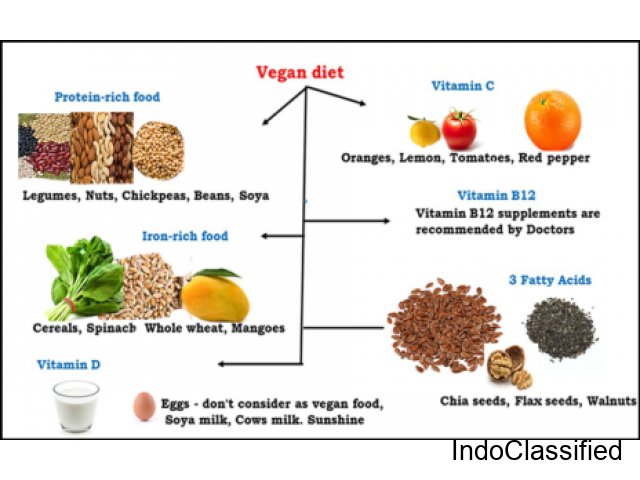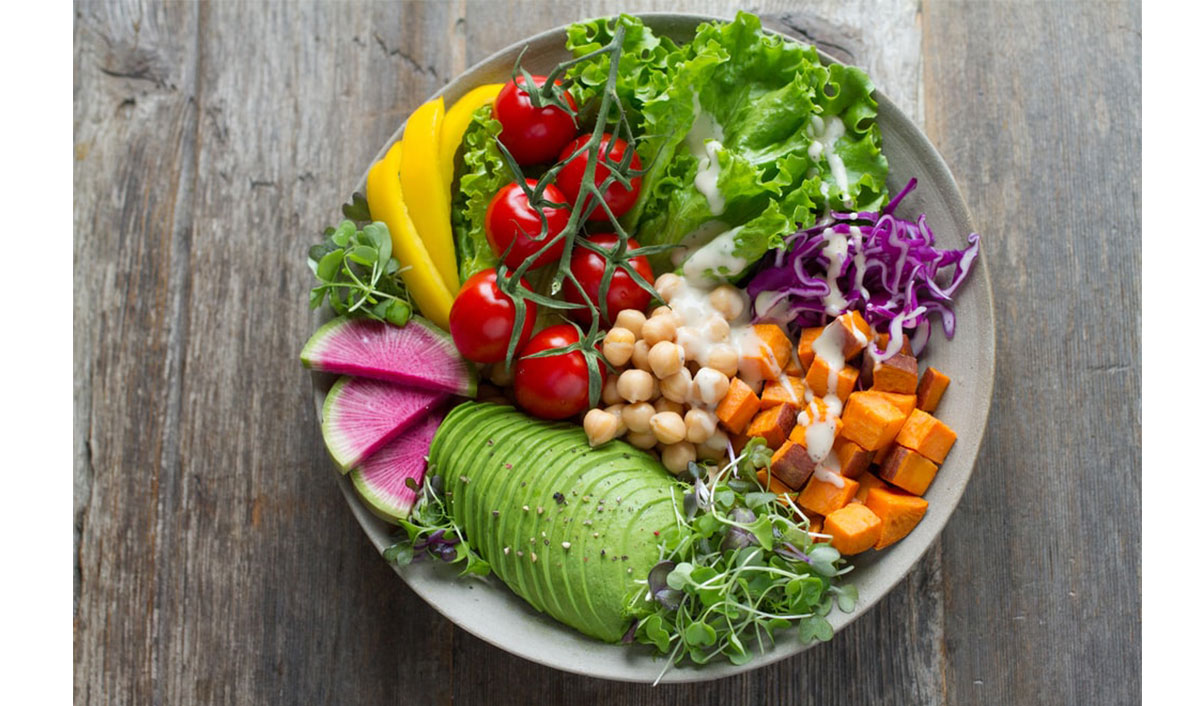A vegan diet involves eating food solely that contains plants. People who follow this diet avoid consuming all forms of animal products, including meat, dairy products and eggs. Some people also avoid honey. For some people, going vegan is a dietary preference, while for others, it is a lifestyle choice. A vegan diet often includes lots of fruits, vegetables, legumes, nuts, and seeds. Eating a variety of these types of food will provide a variety of important vitamins, minerals, healthy fats and proteins. However, those who follow this diet must pay attention to obtaining the key nutrients that people usually consume in animal products. These nutrients are: protein, iron, Vitamin B-12, Vitamin D and calcium.
What is the difference between vegan and vegetarian?
The primary difference commonly found between a vegetarian and vegan diet is that although vegetarians don’t consume meat of chicken, cattle, pigs and fish directly, yet they do consume dairy, eggs, or both which come from these animals. On the other hand, the vegan diet does not include all products that contain animal ingredients, be it meat or any form of other bi-product. In comparison, vegan diets are considered to be more restricted, hence, before completely opting it, people need to critically analyse how they will extract their nutritional sources to make sure they meet their daily dietary needs.

What are the benefits of a vegan diet?
It is widely believed that a vegan diet is made up of all the nutrients that a human body requires, which results in elimination of several potential risks associated with fats of animals. Research has linked a vegan diet to a variety of health benefits, including the following benefits:
1 Enhances the heart
A vegan diet can promote heart health in many ways. A large-scale study conducted in 2019 linked increasing plant-based food intake and decreasing animal-based food intake with lower risks of heart disease and death in adults. Animal products, such as meat, cheese, and butter, are the main dietary sources of saturated fat. According to reliable sources from the American Heart Association (AHA), eating foods that contain these fats will increase cholesterol levels. As medical science suggests, consumption of cholesterol in high amounts can result in stroke and other heart diseases. Plant foods are also high in fiber, which AHA Trusted Source associates with better heart health. People on a vegan diet generally consume fewer calories than people on a standard western diet. A moderate calorie intake can lead to a lower body mass index (BMI) and a lower risk of obesity, which is a major risk factor for heart disease.
2. Reduces the risk of cancer
According to a 2017 review, following a vegan diet can reduce a person’s cancer risk by 15%. This health benefit may be due to the fact that plant foods are rich in fiber, vitamins, and phytochemicals that can prevent cancer. Research on the impact of diet on the risk of specific cancers has produced mixed results. However, the International Agency for Research on Cancer reported that red meat “may be carcinogenic” and noted that the research primarily links it to colorectal cancer, prostate cancer and pancreatic cancer. The agency also reported that processed meat is carcinogenic and can cause colorectal cancer. Eliminating red and processed meats from your diet can eliminate these potential risks.
3. Reduces weight
Vegetarians tend to have a lower body mass index (BMI) than other dieters. Replacing animal food abundant in fat with plant food which has a low-calorie nature can help reduce weight. However, it is important to note that eating large amounts of high-fat or processed plant foods can lead to unhealthy weight gain.
What are the supplements you should look for?
A vegan diet can be lacking in certain nutrients at times. However, there are special foods and dietary supplements that can help people meet their daily needs, out of which, the common ones can be:
- Vitamin B-12 supplement
- Nutritional yeast and yeast paste, rich in vitamin B-12
- Iron supplements
- Calcium supplement
- Vitamin D supplements
- Vegan omega-3 supplement
- Zinc supplements
- Iodine supplements
Vegan diets are becoming more and more popular with the growing age as it has multiple health benefits including the ability to enhance hearth health, lead to weight loss or reduce risk of chronic diseases. Many research officials have also highlighted that a vegan diet is better for the environment and ecosystem.


